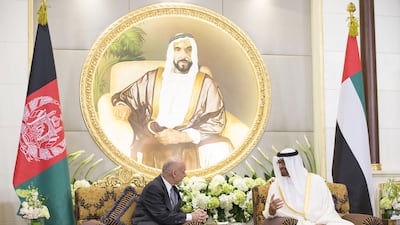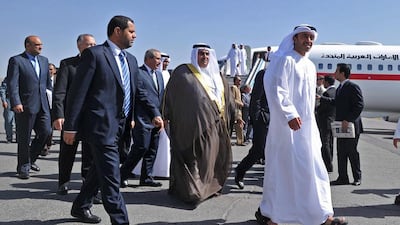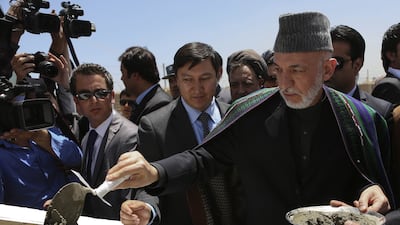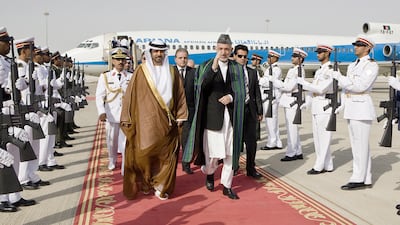ABU DHABI // The relationship between the UAE and Afghanistan goes back for more than a decade, with the Emirates involved in the country’s military stabilisation since the collapse of the Taliban regime.
Since 2003, it has had an effective presence in Afghanistan, ensuring stability as the country continues to suffer attacks from Taliban militants, and delivering aid while helping it to rebuild.
“Afghans appreciated UAE officers when conducting search operations because they reportedly were more attuned to the Afghan cultural nuances than western forces,” said Dr Albadr Al Shateri, politics professor at the National Defence College in Abu Dhabi.
“The UAE extended economic and financial assistance to Afghanistan. Moreover, the healthcare sector benefited from UAE assistance, reducing the infant mortality rate by a quarter.”
The Emirates set up countless humanitarian and development projects in the country, including the building of schools, which has increased literacy in the country. Financial grants were also given by the UAE to build infrastructure, including roads, mosques and hospitals.
“Today, the UAE made the ultimate sacrifice for Afghanistan and provided what the country treasures most, the blood of its children,” Dr Al Shateri said.
After the September 11, 2001 attacks on the US, the late Sheikh Zayed, the Founding Father of the UAE, cut ties in Afghanistan with the Taliban. After the overthrow of the militants’ regime, the UAE was ready to work with the new government. Immediately, Emirates Red Crescent sponsored 40,000 refugees, providing them with food, shelter and health care.
The UAE first pledged US$36 million (Dh132m) for the effort at the 2002 Tokyo Donors Conference. But this soon grew to $550m by 2008, as the UAE and its leaders became increasingly ambitious about rebuilding the country’s infrastructure and education, health and defence sectors.
The 6,400-student Sheikh Zayed University, in Khost, was named in 2008 in recognition of the UAE’s financial support. The country also contributed to the construction of 11 schools, six medical clinics for 35,000 patients, 38 mosques, a 7,000-patient hospital, a public library, accommodation for 200 families, 160 wells and other developments.
“Despite the dangerous environment in Afghanistan for many, many years, the UAE has shown great solidarity with the Afghan people,” said Sabahat Khan, senior analyst at the Institute for Near East and Gulf Military Analysis in Dubai.
“It has been one of the most active countries providing humanitarian assistance and supporting development efforts.”
A further Dh92m was spent clearing Kandahar of 11,000 mines – making the area safe for commercial, agricultural and residential use.
From 2011 to 2013, the country raised nearly Dh1 billion in aid for Afghanistan, with 45 per cent coming from the Government and 41 per cent from the Abu Dhabi Fund for Development.
“The UAE has helped Afghanistan in the past,” said Ahmed Al Attar, assistant director of defence and security at Abu Dhabi think tank the Delma Institute. “It recognises that it is strategically beholden to that region and what happens there impacts us as well [in the] long term.
“It is just a few countries away, so it doesn’t live in a vacuum and the sustainability and safety of Afghanistan is important.”
He said, however, that the UAE was no longer as invested as it once was owing to unrest in the Middle East and the crisis in Yemen.
“The region is going through a difficult period,” he said. “So we’ve drawn down our level of involvement and there is no longer a military campaign. We are taking a more developmental stance in that respect.”
cmalek@thenational.ae






